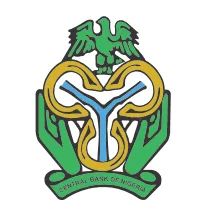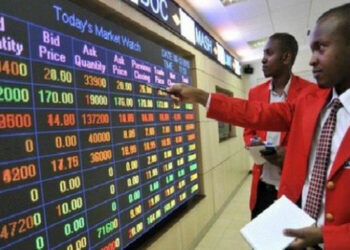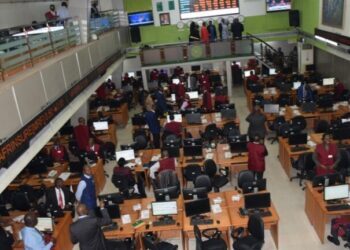By Abubakar Yunusa
The Northern Elders Forum (NEF) has addressed reports of internal “disquiet” among CBN staffers following the management’s decision to relocate certain departments to the CBN Lagos office.
On January 12, the CBN, through a circular from the director of its human resources department, conveyed its plans to decongest its head office in Abuja.
“The action plan focuses on optimizing the utilization of other Bank’s premises. With this plan, 1,533 staff will be moved to other CBN facilities within Abuja, Lagos, and understaffed branches,” the bank said, as reported by The Nation.
“Our current occupancy level of 4,233 significantly exceeds the optimal capacity of 2,700 designed for the Head Office building. This overcrowding poses several critical challenges.
Daily Nigerian reported over the weekend that the move has caused disquiet among CBN staff, with claims that the plan would render the Abuja office of the apex bank ‘useless.’
In a statement signed by its Director of Publicity and Advocacy/spokesperson, Abdul-Azeez Suleiman, stated that Northern Nigeria already faces various economic challenges, such as poverty, unemployment, and insecurity.
According to the statement, NEF finds the broader negative implications of relocating these key departments ridiculous and unacceptable, as moving economic decision-making power to Lagos could exacerbate regional disparities, fostering a sense of marginalization among other regions, particularly Northern Nigeria.
“Additionally, this move could hinder the northern governments’ efforts to promote economic diversification and reduce dependence on oil revenue.
“Unacceptably too, the North, which is home to a significant portion of Nigeria’s population, would be disproportionately affected by the relocation, reducing access to economic opportunities and financial services, further widening the economic gap between Northern Nigeria and other regions, potentially exacerbating social and political tensions.
“NEF is also deeply concerned about the implications this relocation would have on the lives of the affected staff members. Reports suggest that this move would affect 1,533 dedicated staff members, forcing some individuals, particularly married women, who are mostly from the North, to contemplate resigning.
“We believe it is crucial to consider the impact on the personal lives and families of these staff members, especially married women who may struggle to cope with this decision.
“The NEF urges the CBN and relevant authorities to prioritize the nation’s overall progress and the well-being of its citizens.
“We recommend a holistic approach that considers not only the efficiency and effectiveness of departmental operations but also the livelihoods and future development of all regions of Nigeria.
“We urge the government to evaluate the potential drawbacks of such a move thoroughly. It is important to consider the impact on Abuja’s role as the capital city, the potential repercussions on regional development and economic balance, and the overall effectiveness and efficiency of the relocated departments in serving their intended purpose.
“We call upon the CBN and relevant authorities to thoroughly review the consequences of this relocation and explore alternative arrangements that do not compromise the career growth and work-life balance of its valuable employees.
“It is essential to ensure that the burden of relocation is not unfairly placed on the shoulders of these individuals and their families.”











